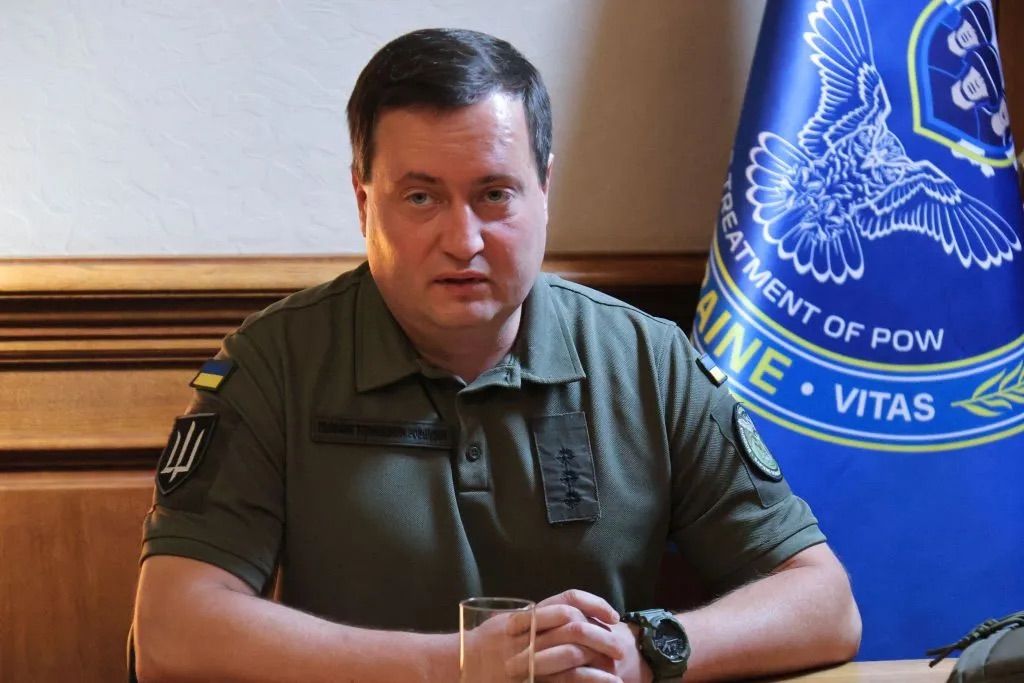Ukraine’s military intelligence spokesperson, Andrii Yusov, refuted Russian President Vladimir Putin’s claims regarding the numbers of Ukrainian and Russian prisoners of war (POWs). Putin stated that there are approximately 1,348 Russians in Ukrainian captivity and 6,465 Ukrainian soldiers in Russian captivity. However, Yusov stated that these numbers do not align with reality, particularly with the number of Russian POWs. Ukraine has not disclosed the actual figure, as the Coordination Headquarters for the Treatment of POWs follows certain principles and does not name specific numbers. Yusov emphasized that Putin’s claims are part of Russian propaganda. Despite several prisoner exchanges taking place since last November, where 71 Ukrainian service members and four civilians were released on May 31, Ukrainian authorities previously reported that 2,384 soldiers and civilians remained in Russian captivity.
President Volodymyr Zelensky has proposed the idea of an all-for-all POW exchange to be discussed during the upcoming global peace summit in Switzerland in June. The recent return of 75 Ukrainian prisoners from Russian captivity, including service personnel of the Armed Forces, National Guard, border guards, and civilians, highlights the ongoing efforts to secure the release of individuals held captive. The release of these individuals is significant in bridging the gap between the two nations and promoting peace and reconciliation. Zelensky’s commitment to addressing the POW issue at an international forum demonstrates Ukraine’s dedication to resolving conflicts through diplomatic means. By participating in the global peace summit, Ukraine aims to garner support from the international community and find solutions to the ongoing prisoner exchange process.
The discrepancy in the reported numbers of POWs by Putin and Ukraine’s military intelligence spokesperson underscores the lack of transparency and trust between the two countries. The conflicting narratives regarding the treatment and whereabouts of prisoners reflect the broader geopolitical tensions and propaganda warfare that characterize the Ukraine-Russia conflict. As both sides continue to accuse each other of misinformation and propaganda, the plight of prisoners of war remains a pressing humanitarian issue. The international community plays a crucial role in monitoring the treatment of prisoners and advocating for their humane treatment and timely release. By shedding light on the discrepancies in reported numbers and upholding the principles of transparency, Ukraine seeks to bring attention to the ongoing challenges faced by individuals held captive in the conflict.
The involvement of Ukrainian authorities in facilitating prisoner exchanges and advocating for the release of individuals held in captivity demonstrates a commitment to upholding human rights and addressing the humanitarian consequences of the conflict. By engaging in diplomatic efforts and proposing initiatives such as an all-for-all POW exchange, Ukraine seeks to find resolutions to the complex issues stemming from the conflict with Russia. The return of 75 Ukrainian prisoners from Russian captivity serves as a tangible outcome of these efforts and a step towards building trust and reconciliation between the two nations. As Ukraine continues to navigate the challenges of conflict resolution and peacebuilding, the release of prisoners of war remains a key priority in building a sustainable path towards peace and stability in the region.
The global peace summit scheduled to take place in Switzerland presents an opportunity for Ukraine to engage with the international community and seek support for its efforts to address the humanitarian consequences of the conflict. By highlighting the issue of prisoners of war and advocating for their release, Ukraine aims to garner international solidarity and cooperation in resolving the ongoing challenges faced by individuals held captive. The summit provides a platform for diplomatic dialogue and multilateral engagement, offering a forum for discussing solutions to the conflict and promoting peacebuilding initiatives. As Ukraine continues to advocate for the rights of prisoners of war and pursue diplomatic avenues for conflict resolution, the support of the international community remains crucial in advancing efforts towards lasting peace and reconciliation in the region.


